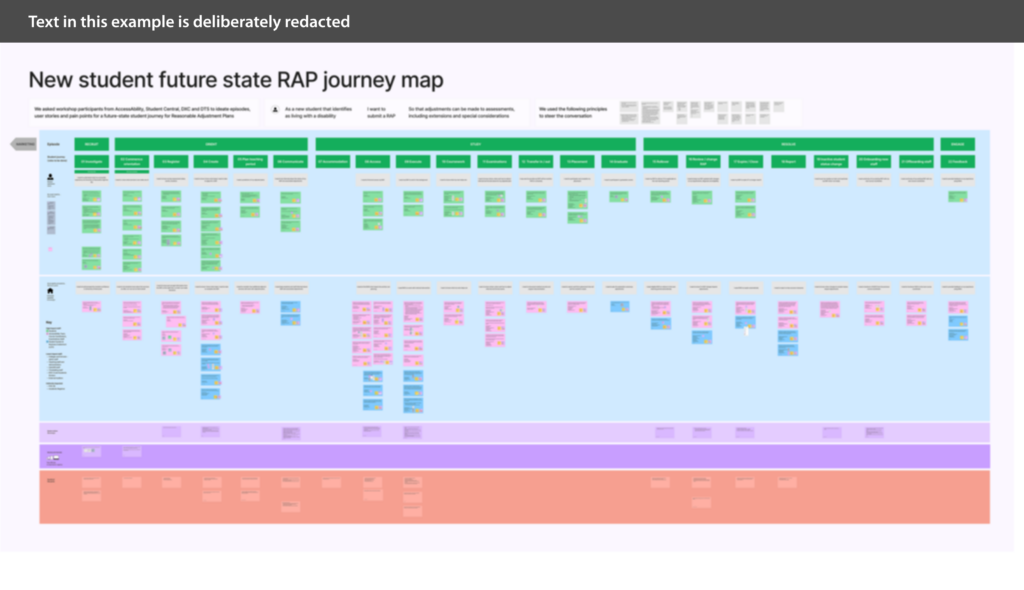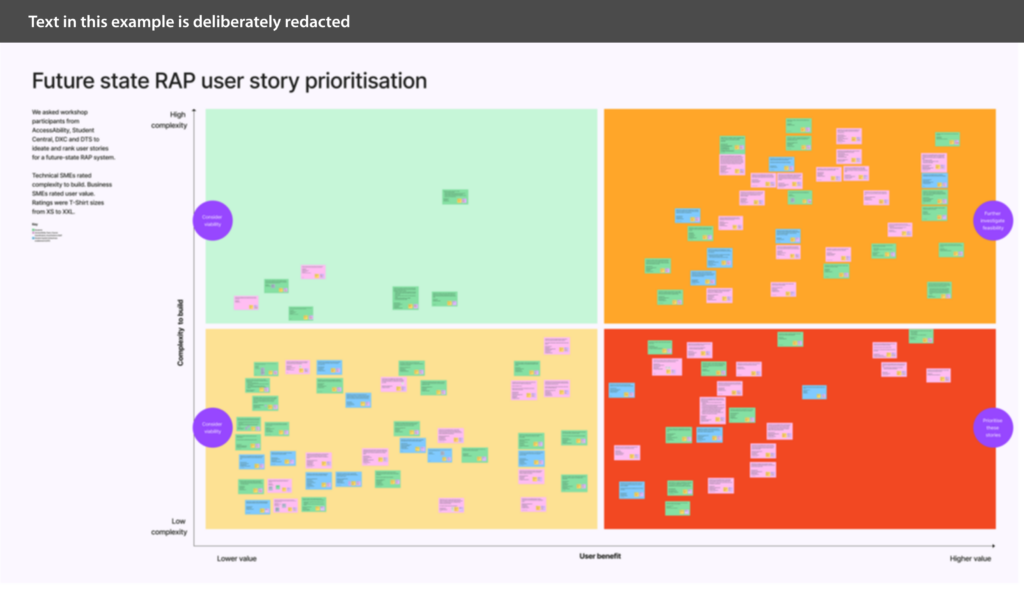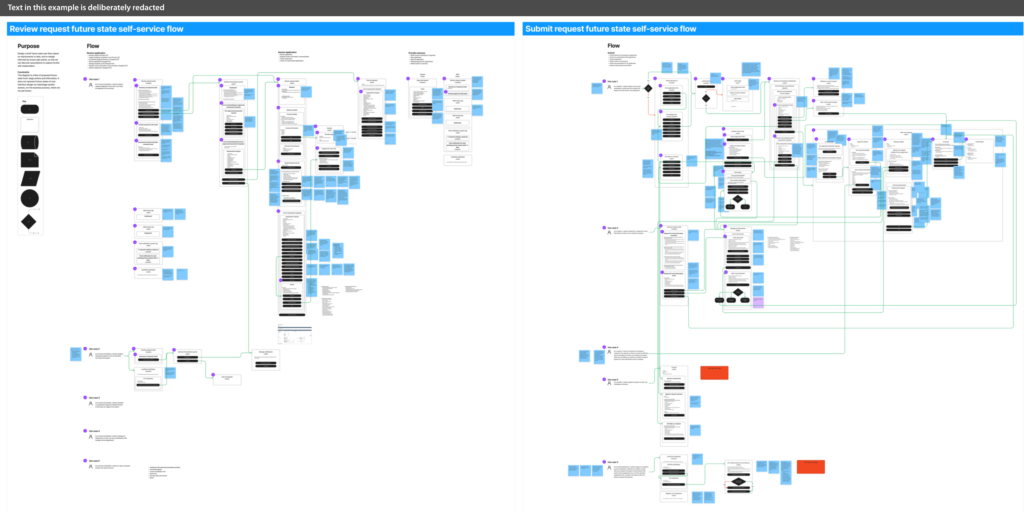Recently I was asked to evaluate an Australian university’s reasonable adjustment plan service (RAPs).
RAPs is a service designed to address inequitable access to education.
Using co-creation to understand the end-to-end experience, we prioritised improvement opportunities based on impact and technical complexity.
The challenge
The problem to solve
I needed to reach out to accessibility communities of practice, students, health care professionals and internal stakeholders to find out what was working well and where there was room to improve services for students living with a disability.
Outputs



Key findings
Based on key findings from my research, I gave the following advice to the university.